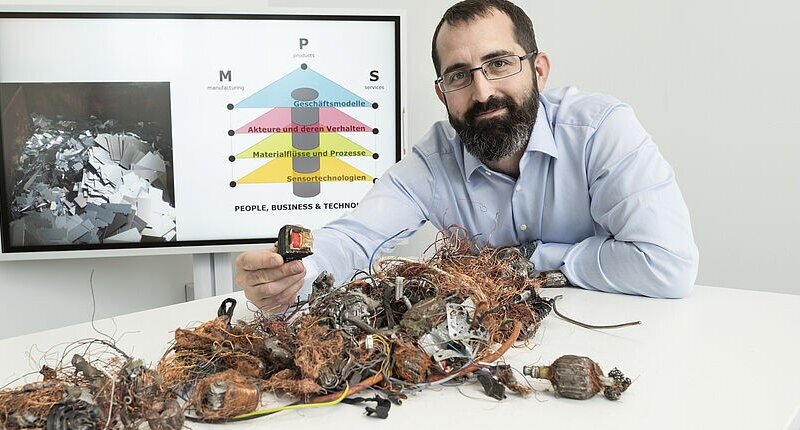HSLU illustrates how metal recycling can be improved
Lucerne - Studies carried out by the Lucerne University of Applied Sciences and Arts (HSLU) offer solutions for a future-oriented, resilient and import-independent metal life cycle. To improve metal recycling, the researchers recommend the use of sensor technologies and standardized data systems.
Researchers from the Lucerne University of Applied Sciences and Arts (HSLU) have explained in two studies how metal recycling can be improved in Switzerland through the use of sensor technologies, standardized data systems and cooperation along the value added chain. According to a press release, Switzerland could strengthen its independence from imports in this way, at the same time as generating ecological and economic benefits. An improvement of just 15 percent in relation to recycled metal scrap could save up to 36,000 tons of CO2 each year and generate added value of approximately 30 million Swiss francs.
While 95 percent of scrap metal in Switzerland ends up in recycling plants, a large portion of this can no longer be used for high-value applications due to contamination effects. As part of the ReRe Circular Economy for Metals project, researchers investigated how smart sensors combined with self-learning Artificial Intelligence (AI) could solve this problem. When used for deliveries to collection points, the AI was able to identify critical components such as batteries or pressure vessels and enable precise and safe sorting.
The second research project, REINVENT, analyzed the entire metal recycling system to lay the foundations for a networked, sustainable circular economy for metals in Switzerland. In addition to technological innovations, the key aspects for this include binding quality standards, reliable traceability data and economic incentives for companies. The researchers also explained that understanding of the added value linked to clean recycling must be increased in order to promote investments.
Switzerland currently generates approximately 2 million tons of scrap metal per annum. According to Prof. Dr. Simon Züst, who acted as research group leader for both studies, it is therefore crucial to address the problem of inadequate recycling. «High-quality recycling is not a compromise, but rather represents the key to ensuring a sustainable supply of raw materials for tomorrow», Züst states. ce

